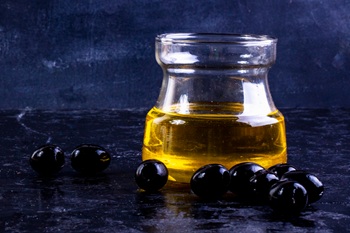Natural Warriors: Supplements That Fight Inflammation
Inflammation activates the immune system in response to damage or foreign substances entering the body, such as bacteria, viruses, or hazardous chemicals (1). Not all inflammation is harmful. It sometimes occurs to protect our bodies from fever and illness. Fever is a symptom of certain diseases, such as the flu, which indicates inflammation in the body. It controls body temperature and shields the body from infections (2).
The process occurs when our body cells are released to either begin the repair process in damaged tissue or to trap pathogens and other harmful agents (1,3). This is known as the inflammatory response. It may result in discomfort, bruising, swelling, or redness. In some cases, inflammation impacts internal body systems that may not be immediately visible (4).
Types of inflammation
Acute inflammation is short-term and beneficial for healing injuries and fighting infections- for instance, a cut on a finger. If you have an injury, the body sends inflammatory cells toward the injury, and the healing process gets activated. This process takes a few hours or days. The primary symptoms observed during acute inflammation include swelling, flushed skin, pain, and tenderness (3, 4).
Chronic inflammation can arise from poor diet, a sedentary lifestyle, and stress. It occurs for a longer period. Unlike acute inflammation, which defends against infection or injury, chronic inflammation can harm health, leading to conditions like cardiovascular disease, diabetes, and cancer. Lifestyle changes, including a balanced diet, regular exercise, stress management, and adequate sleep, play pivotal roles in mitigating chronic inflammation.
In addition to modifying one’s lifestyle, several supplements have been shown to lower inflammation. We will look at various supplements that lower inflammation and enhance general health.
Supplements That Help Lower Inflammation
Omega-3 Fatty Acids
Omega-3 fatty acids are necessary fats obtained through diet as the body cannot produce them (5,6). Omega-3 fatty acids have been shown to lessen inflammatory responses in the body. The fats are abundant in fatty fish such as salmon, mackerel, and sardines. Some plant-based foods such as walnuts, chia seeds, and flaxseeds, contain omega-3 fatty acids.
Research shows a correlation between higher consumption of omega-3 fatty acids and a reduction in cardiovascular disease-related mortality, including an improvement in arthritis symptoms (5,7). These fatty acids are broken down by the body and utilized to create anti-inflammatory and antioxidant products (8).
Turmeric or Curcumin
Turmeric is a vibrant golden-orange spice frequently used in Indian cooking. This root has been widely used in traditional Chinese and Ayurvedic medicine (5,9). Curcumin is an active polyphenol compound found in turmeric, a potent anti-inflammatory and antioxidant compound. According to studies, curcumin suppresses inflammation by preventing NF-kB, a molecule that controls the expression of genes to inflammation.
Curcumin supplements or turmeric consumption may help reduce the symptoms of inflammatory diseases like inflammatory bowel disease and arthritis (5,6,9).
Studies show that taking supplements containing curcumin, often sold as pills or capsules, may be hazardous and cause kidney stones. However, it can be beneficial to take turmeric in its natural form by adding it to food (10).
Ginger
Ginger is a root with an intense flavor used in various traditional and alternative medicines. It is known for its healing properties. Bioactive substances in ginger include paradol, shogoal, and gingerol. According to studies, gingerol contains anti-inflammatory and antioxidant effects. It can reduce oxidative stress and inhibit the production of inflammatory cytokines (11). With this knowledge, adding ginger to an everyday diet can reduce inflammation.
Some of the ways to incorporate ginger into everyday life are:
- Ginger juice or smoothies. The most effective form of ginger is using the fresh root for juices or smoothies. Ginger root is also commonly used as a spice in many dishes.
- Ginger capsules and supplements are available in pharmacies and supermarkets and are a great addition to everyday diet.
- Ginger tea. The popularity of ginger tea is rapidly increasing due to its health benefits. Aside from fighting inflammation, ginger tea helps combat digestion issues such as colds, coughs, nausea, and upset stomachs.
- Ginger chews: Various ginger-flavored candies are good to taste and offer anti-inflammatory benefits.
Similar Read;
Green Tea
Green tea has been enjoyed as a flavourful beverage and used as a medicinal herb for thousands of years in China. Because of its many well-recognized health benefits, green tea has become more universally popular today (12). It can help prevent and manage illnesses, diabetes, cancer, obesity, heart disease, and neurological disorders.
The numerous health benefits of green tea can be attributed to its high antioxidant content (5,6). Tea contains a lot of polyphenols, which are organic substances that shield cells from oxidative stress, lower inflammation, and prevent cell damage. Green tea contains antioxidants called catechins, which have potent anti-inflammatory effects.
The most prevalent catechin in green tea is called epigallocatechin-3-gallate or EGCG. Studies have shown that EGCG can help reduce inflammation and lower the risk of chronic diseases such as heart disease and cancer. Green tea can be enjoyed hot or cold and is a refreshing and healthy beverage choice.
Quercetin
Quercetin is a natural flavonoid in fruits, vegetables, and grains. Quercetin exerts anti-inflammatory effects by inhibiting inflammatory enzymes and signaling pathways. Additionally, quercetin acts as a potent antioxidant, scavenging for free radicals and reducing oxidative stress, which contributes to inflammation-related tissue damage.
In a study, 50 women diagnosed with rheumatoid arthritis were administered 500 mg of quercetin. They observed a significant reduction in stiffness and pain. Additionally, it was observed that there was a reduction in inflammatory markers like TNF-α. About 500-1000 mg of quercetin is the ideal dosage in our everyday lives to combat inflammation (13).
Resveratrol
Abundant in red grapes, berries, and peanuts, as well as red wine and dark chocolate, resveratrol shows potent anti-inflammatory and antioxidant effects (14,15). Its ability to reduce inflammation in patients with long-term illnesses such as liver disease has been extensively researched. It modulates inflammatory pathways, inhibiting the expression of pro-inflammatory genes and reducing oxidative stress.
Most resveratrol supplements have no severe adverse effects and range in dosage from 150 to 500 mg per serving (15). Incorporating resveratrol-rich foods or supplements into your diet may help combat inflammation and promote overall health. However, it is better to consult a healthcare professional before consuming the supplement.
Garlic
Like pineapple, ginger, and fatty fish, garlic is high in anti-inflammatory compounds. Garlic has been used for centuries for its medicinal properties, including its ability to reduce inflammation (16). It has sulfur-containing compounds that help the body fight inflammation. Garlic not only adds flavor to food but also has many health benefits, such as lowered inflammation and strengthened immunity.
Garlic is rich in allicin, a powerful anti-inflammatory that can fortify the immune system to fend off pathogens that cause disease (5,6). Research has shown that taking aged garlic as a supplement over an extended period may help lower the risk of chronic diseases. Consuming just 2 g of fresh garlic, or roughly one clove daily, may have anti-inflammatory benefits.
Vitamin C
Vitamin C is an essential vitamin for fighting inflammation and enhancing immunity is vitamin C. It is a potent antioxidant that lowers inflammation by scavenging free radicals that harm your cells through oxidative stress. Since inflammation is an immune response, it can also help control inflammation in several other ways by enhancing immune system function.
Doses exceeding 2,000 mg, however, may cause diarrhea in healthy individuals. Other than that, taking vitamin C supplements is generally a safe and symptom-free option (5,17). Green, red, orange, and yellow fruits and vegetables are excellent sources of vitamin C.
Bromelain
Pineapple contains an enzyme known as bromelain that triggers a burning sensation when consumed in excess. This enzyme is known for its anti-inflammatory qualities. Although the anti-inflammatory effects of bromelain in humans have not been studied thoroughly, it may be beneficial in lowering post-operative inflammation in patients having wisdom teeth extracted. All bromelain supplements are safe and effective, usually containing 500 mg of bromelain per serving (5,6).
Spirulina
One kind of blue-green algae that contains potent antioxidant properties is spirulina. According to studies, it supports healthy ageing, lowers inflammation, and may boost immunity. Studies conducted on older adults have suggested that spirulina may enhance immunological function, anemia, and inflammatory markers, even though numerous research has analyzed the effects on animals. Typically, it is considered safe to consume up to 8 g of spirulina daily (5).
Conclusion
While these supplements appear to be effective in reducing inflammation, you should always speak with a doctor before starting any new supplement regimen, especially if you are on medication or have underlying medical issues. For effectiveness, supplements should be used while following a healthy lifestyle, like having routine exercise, stress reduction, and a balanced diet. Through the utilization of the anti-inflammatory compounds found in nature, we can proactively address inflammation and protect our long-term health.
By: Nishtha Kathuria
Edited by: Clare Keeble
Also Read;








Comments (0)